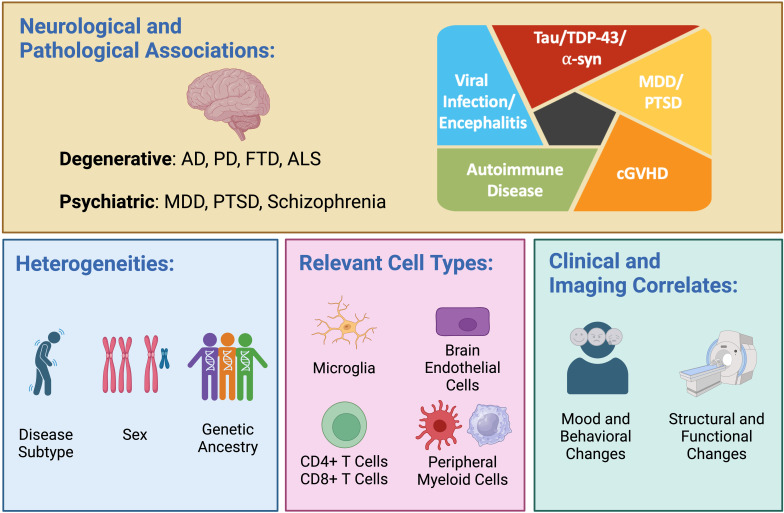Figure 1.
Dysregulated interferon (IFN) responses are observed in a variety of neurodegenerative diseases—including Alzheimer’s disease (AD), Parkinson’s disease (PD), frontotemporal dementia (FTD), and amyotrophic lateral sclerosis (ALS)—and across multiple proteinopathies, including those driven by tau, TDP-43 and α-synuclein (α-syn). Altered IFN signaling is also observed in psychiatric diseases, including major depressive disorder (MDD), post-traumatic stress disorder (PTSD), and schizophrenia (upper panel). A heightened IFN response manifesting as expansion of highly IFN-responsive T cells has been observed in early-onset AD, viral encephalitis, autoimmune disease, and chronic graft versus host disease (cGVHD; upper panel, right). Important biological variables that may modulate the IFN response include disease subtype, sex, and genetic ancestry (lower panel, left). Relevant cell types mediating dysregulated IFN signaling in disease include brain-resident microglia, brain endothelial cells, CD4 and CD8 T cells, and peripheral myeloid cells (lower panel, middle). The use of recombinant type I IFN is associated with cognitive and behavioral changes as well as structural and functional neuroimaging changes (lower panel, right). Created in BioRender. Yokoyama, J. (2024) BioRender.com/n80o218.

